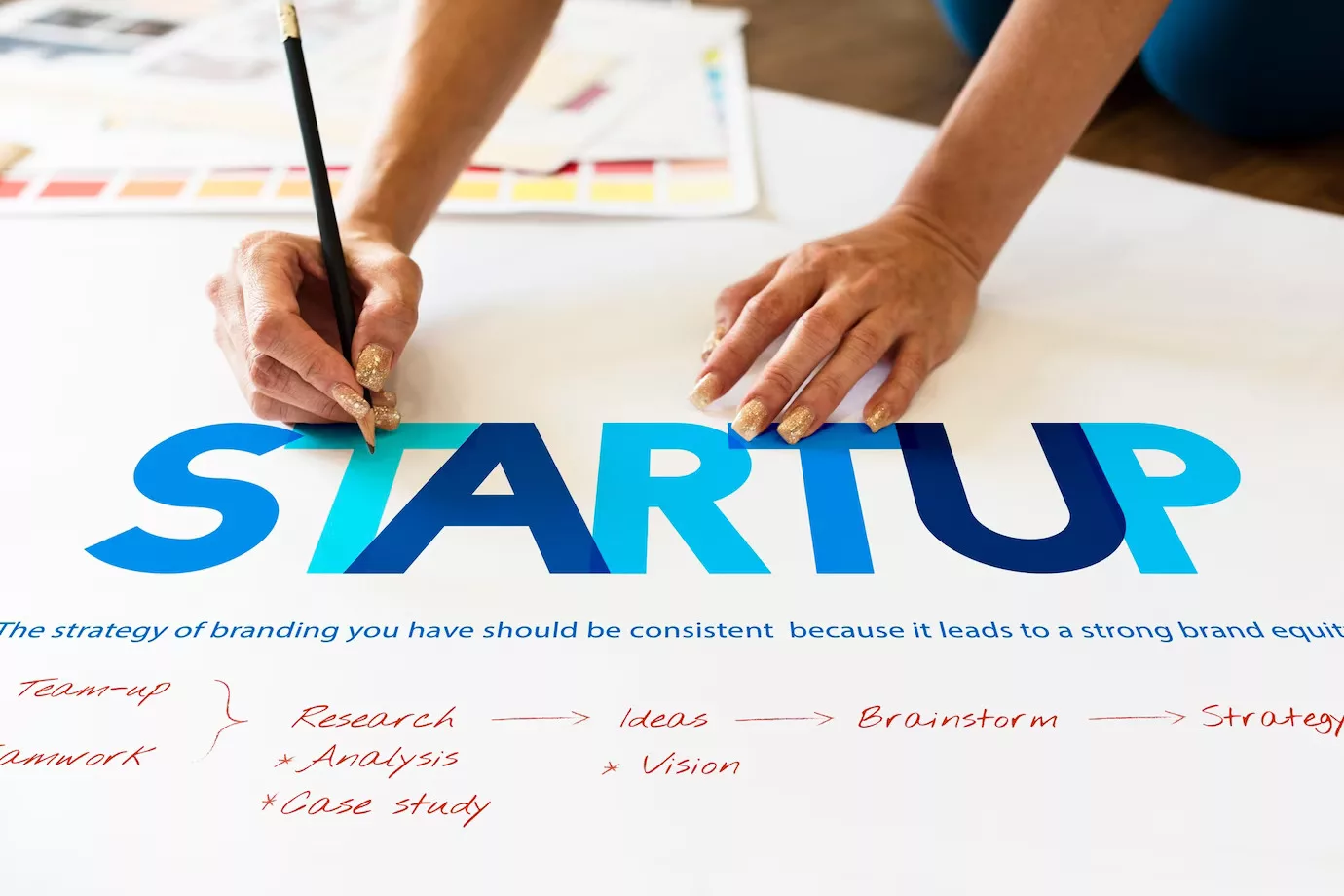Front-end developers play a pivotal role in shaping the success of your startup. With over 218,350 front-end developers employed in the United States, it’s clear that this field is thriving and essential for any organization’s growth and innovation.
As a startup founder or business owner, finding the front-end developer for your project can be a game-changer. The developer can help you build user-friendly, visually appealing, and highly functional web applications that captivate your target audience.
In this blog, we’ll address the question of how to hire a front end developer for a project for my start up. Whether you’re launching a new product, revamping your website, or expanding your digital presence, we’ll provide you with valuable insights to make an informed and successful hiring decision.
Assess Your Startup’s Needs

Define Your Project Goals
Before you begin hiring developers for startups, have a firm grasp of your project’s goals and objectives. Consider what you aim to achieve with your startup project and how a front-end developer will contribute to these goals. Understanding the broader vision will help you pinpoint the specific skills and expertise required for the role.
Identify the Scope of Work
Break down the tasks and responsibilities that the front-end developer will be responsible for. Determine whether they will focus on web development, user interface design, or both. By clarifying the scope of work, you can communicate your expectations more effectively and find a candidate with the right skill set.
Consider Your Technology Stack
Evaluate the technologies and tools your startup is using or planning to use for the front end. Consider whether you’re working with specific programming languages, frameworks, or content management systems. Ensuring that the candidate’s skills align with your tech stack will facilitate seamless integration into your development environment.
Determine Project Timeline
Assess your project’s timeline, including key milestones and deadlines. Decide whether you need a full-time, part-time, or contract startup developer based on your project’s urgency and duration. This assessment will help match the candidate’s availability and commitment to your project’s needs.
Budget Constraints
Determine how much you can allocate to this role, considering salary, benefits, and additional costs. Being clear about your financial limits will help you identify candidates who are a realistic fit for your startup.
User Experience (UX) and Design Needs
Some startups require a front-end developer with design experience, while others may work closely with a dedicated designer. Clarifying these design-related expectations will help you find a candidate who meets your creative needs.
Scalability and Future Growth
Consider whether the startup developer should have experience in building scalable and adaptable solutions. Assess your startup’s potential for growth and whether the developer can handle future requirements. Finding someone who can grow with your startup can be valuable for long-term success.
Prioritize Must-Have vs. Nice-to-Have
Distinguish between essential qualifications and skills that are nice to have but not mandatory for the role. This prioritization will help you focus on the most critical criteria when evaluating candidates.
Design a Job Description

Job Title and Overview
- Job Title: Begin with a clear and appealing job title such as “Front-End Developer” or “Front-End Engineer” to grab the right candidate’s attention.
- Overview: Provide a concise introductory paragraph summarizing the role’s primary purpose and significance within your startup. Mention the team the candidate will work with and your company’s mission.
Responsibilities
List the core duties and responsibilities your startup developer will handle. Be specific and focus on what the candidate will be doing on a day-to-day basis. Include:
- Developing user-friendly web applications.
- Collaborating with designers to implement visual elements.
- Ensuring cross-browser and cross-platform compatibility.
- Optimizing web applications for maximum speed and scalability.
- Troubleshooting and resolving bugs and issues.
Qualifications and Requirements
Technical Skills: Specify the technical skills required for the role, like proficiency in
- HTML, CSS, JavaScript, and modern front-end frameworks (e.g., React, Angular, or Vue.js).
- Version control systems (e.g., Git).
- Responsive and mobile-first web design.
- Web performance optimization.
Experience: Mention the desired years of experience, e.g., “2+ years of front-end development experience.”
Education: Indicate preferred educational qualifications or certifications relevant to front-end development.
Soft Skills: Mention soft skills or attributes that would be beneficial, like problem-solving, attention to detail, or teamwork.
Benefits and Perks
- Compensation: Specify your salary range or compensation package, if possible.
- Benefits: Highlight unique benefits your startup offers. This can be equity options, flexible work arrangements, or professional development opportunities.
- Perks: Mention additional perks, like a casual dress code, office snacks, or team-building activities.
How to Apply
- Application Instructions: Clearly outline the application process, including the preferred method of application (e.g., through your website or email).
- Submission Requirements: Specify the documents candidates should submit (e.g., resume, portfolio, cover letter).
- Deadline: If applicable, provide a deadline for applications.
Closing Statement
Encourage qualified candidates to apply and express your enthusiasm for welcoming a new team member.
Source Candidates

Online Job Boards and Websites
Post your job listing on popular job boards and websites like LinkedIn, Indeed, Glassdoor, and Stack Overflow Jobs. These platforms are really helpful in forming a startup development team.
Company Website
Ensure that your startup’s career page on your website is up-to-date and user-friendly. Provide clear job descriptions and application instructions there.
Networking
Attend tech meetups, conferences, and industry events in your area. These events are great opportunities to meet startup developers and build relationships.
Employee Referrals
Encourage your current employees to refer qualified candidates from their networks. Offer referral bonuses or incentives to motivate them.
Freelance Platforms
Consider platforms like Upwork or Freelancer to find freelance front-end developers. Some may be interested in transitioning to a full-time role.
Tech Recruiters and Agencies
Partner with tech-focused recruitment agencies or headhunters like VinnCorp to help you find developers for your startup. They have extensive networks and can help identify suitable candidates.
Review Resumes and Portfolios

Initial Screening
- Scan for Relevance: Quickly scan the resume for key information like the candidate’s name, contact details, current employment status, and location. Ensure that the candidate’s qualifications align with your startup developer’s requirements.
- Work History: Review the candidate’s work history to assess their experience level. Look for roles, projects, or companies that indicate relevant front-end development experience.
- Education: Check the candidate’s educational background and relevant certifications. While experience often takes precedence, a strong educational foundation can be a plus.
Portfolio Assessment
Review the Portfolio
Examine the candidate’s portfolio to gauge their design and development skills. Look for a link to an online portfolio or attached project samples. Evaluate the following aspects:
- Project Diversity: Assess whether the portfolio includes a variety of projects, like websites, web applications, or mobile-responsive designs.
- Quality: Pay attention to the quality of work. Look for clean, well-structured code, intuitive user interfaces, and visually appealing designs.
- Technologies Used: Identify the technologies and frameworks you want to use in your project. Check if they align with your tech stack.
- Performance: Evaluate the performance of the projects. Are they optimized for speed and responsiveness?
- User Experience: Assess how the candidate prioritizes user experience (UX) and user interface (UI) design principles in their work.
Conduct Interviews

Technical Interview
The technical interview is the core assessment of a startup developer’s skills and abilities. Consider the following:
- Code Review: Ask the candidate to explain their past projects in detail, focusing on their role in each. Discuss the code they’ve written, design choices, and how they overcame technical challenges.
- Algorithms and Data Structures: Assess their understanding of fundamental algorithms and data structures, especially if your projects involve complex logic.
- Responsive Design: Inquire about their experience with responsive and mobile-first design principles.
- Performance Optimization: Discuss their approach to optimizing web applications for speed and performance.
- Debugging: Present a code snippet with a bug and ask them to debug it, demonstrating their debugging skills.
Problem-Solving and Critical Thinking
Pose real-world problems or scenarios related to the startup development team. Evaluate their problem-solving skills, creativity, and ability to think critically.
Behavioral Interview
Assess the candidate’s soft skills, teamwork, and cultural fit with your startup. Ask behavioral questions that reveal their work ethic, communication skills, and adaptability. For example:
- “Can you describe a challenging project you worked on and how you overcame obstacles as a team?”
- “Tell me about a time when you had to prioritize tasks to meet a tight deadline.”
Communication Skills
Evaluate their ability to communicate technical concepts clearly and concisely, especially if they’ll be collaborating with non-technical team members.
Cultural Fit
Discuss your startup’s culture, values, and work environment. Ask questions to gauge if the candidate aligns with your startup’s ethos.
Follow-up Interview(s)
Depending on the complexity of the role and your startup’s requirements, conduct additional technical or cultural interviews with different team members.
Technical Assessment and Testing

To effectively assess and test a startup developer, design technical assessments that evaluate their skills, knowledge, and problem-solving abilities. Here’s a structured approach to technically assess front-end developers:
Review Their Code Samples
Before conducting any formal tests, thoroughly review the candidate’s portfolio and code samples. Pay attention to the following:
- The quality of their code.
- The variety of projects they’ve worked on.
- Their ability to create visually appealing and user-friendly designs.
- Their proficiency in front-end technologies and frameworks (e.g., HTML, CSS, JavaScript, React, Angular, Vue.js).
Coding Test or Project Assessment
Consider giving candidates a coding test or a small project to complete as part of the assessment. Here’s how to structure it:
- Clear Instructions: Provide clear instructions, requirements, and expected outcomes for the test or project.
- Timeframe: Set a reasonable timeframe for completion (e.g., 2-3 hours for a coding test, 1-2 days for a small project).
- Realistic Scenario: Design the test or project to simulate a real-world task that a front-end developer at your startup might encounter.
- Use Version Control: Encourage candidates to use version control (e.g., Git) to submit their work, demonstrating their familiarity with industry-standard tools.
- Assessment Criteria: Define specific criteria for evaluation, like code structure, readability, adherence to best practices, and the quality of the user interface.
Pair Programming Exercise
Consider conducting a pair programming exercise during the interview, where the candidate works on a real-time coding task alongside a team member. This assesses their ability to collaborate, communicate, and write code under pressure.
Problem-Solving Scenarios
Present the candidate with problem-solving scenarios that they might encounter in your startup. Assess their ability to analyze the situation, propose solutions, and make informed decisions.
Code Quality and Best Practices
Evaluate the candidate’s knowledge of code quality and best practices, including:
- Use of semantic HTML.
- Proper CSS organization and naming conventions (e.g., BEM).
- Accessibility considerations.
- Cross-browser compatibility.
- Performance optimization techniques.
Evaluate Soft Skills

Behavioral Interview Questions
Use behavioral interview questions to probe into the startup developer’s past experiences and assess their soft skills. For a front-end developer, consider questions like:
- Teamwork: “Can you provide an example of a project where you had to collaborate closely with designers, back-end developers, or other team members? How did you ensure effective communication and cooperation?”
- Communication: “Describe a situation where you had to explain complex technical concepts or decisions to non-technical stakeholders. How did you ensure they understood your explanations?”
Teamwork and Collaboration
During the interview, inquire about the front-end developer’s experience working in cross-functional teams. Ask them to provide examples of how they contributed to a positive team dynamic, resolved conflicts, or supported colleagues.
Time Management and Prioritization
Front-end developers manage multiple tasks and meet deadlines. Ask candidates about their strategies for time management and how they prioritize tasks when working on multiple projects simultaneously.
Attention to Detail
Detail-oriented candidates are less likely to introduce bugs or inconsistencies in their code. Assess this by asking about their coding practices and how they ensure code quality and accuracy.
Cultural Fit
Discuss your startup’s culture and values during the interview. Ask questions about the candidate’s work style, work-life balance preferences, and what type of work environment they thrive in. Assess if their values align with your startup’s culture.
Hire and Onboard

Make an Offer
Once you’ve identified the right candidate, extend a formal job offer. Ensure the offer includes details on compensation, benefits, start date, and other relevant information.
Paperwork and Documentation
Complete necessary HR and legal paperwork, such as employment contracts, tax forms, and benefits enrollment.
Equipment and Software Setup
Ensure the startup developer has the required hardware (e.g., computer, monitor) and software (e.g., development tools, licenses) they need to perform their job.
Orientation and Welcome
Plan a warm welcome for the new startup developer on their first day. Introduce them to the team, provide a tour of the workspace (if applicable), and offer a company overview.
Training and Onboarding Plan
Develop a structured onboarding plan that outlines the training modules, resources, and expectations for the first few weeks. Include technical training on your startup’s codebase and development processes.
Access and Permissions
Ensure the developer has access to necessary systems, repositories, and documentation. Grant permissions as required.
Introduction to Projects
Gradually introduce the startup developer to your startup’s projects. Start with smaller tasks and gradually increase their responsibilities as they become more familiar with your codebase and processes.
Find Developers for Startup in No Time Now
Looking for a front-end developer that fits your budget and needs? VinnCorp is the best place to hire web developers.
We are a hub of remote talent with Silicon Valley standard resources. Our experts have a strong and proven background in delivering dynamic and world-class websites. They learn and equip themselves with modern tools and techniques to keep pace with the evolving technology.
Get in touch with us to hire a startup developer and accelerate your success.



